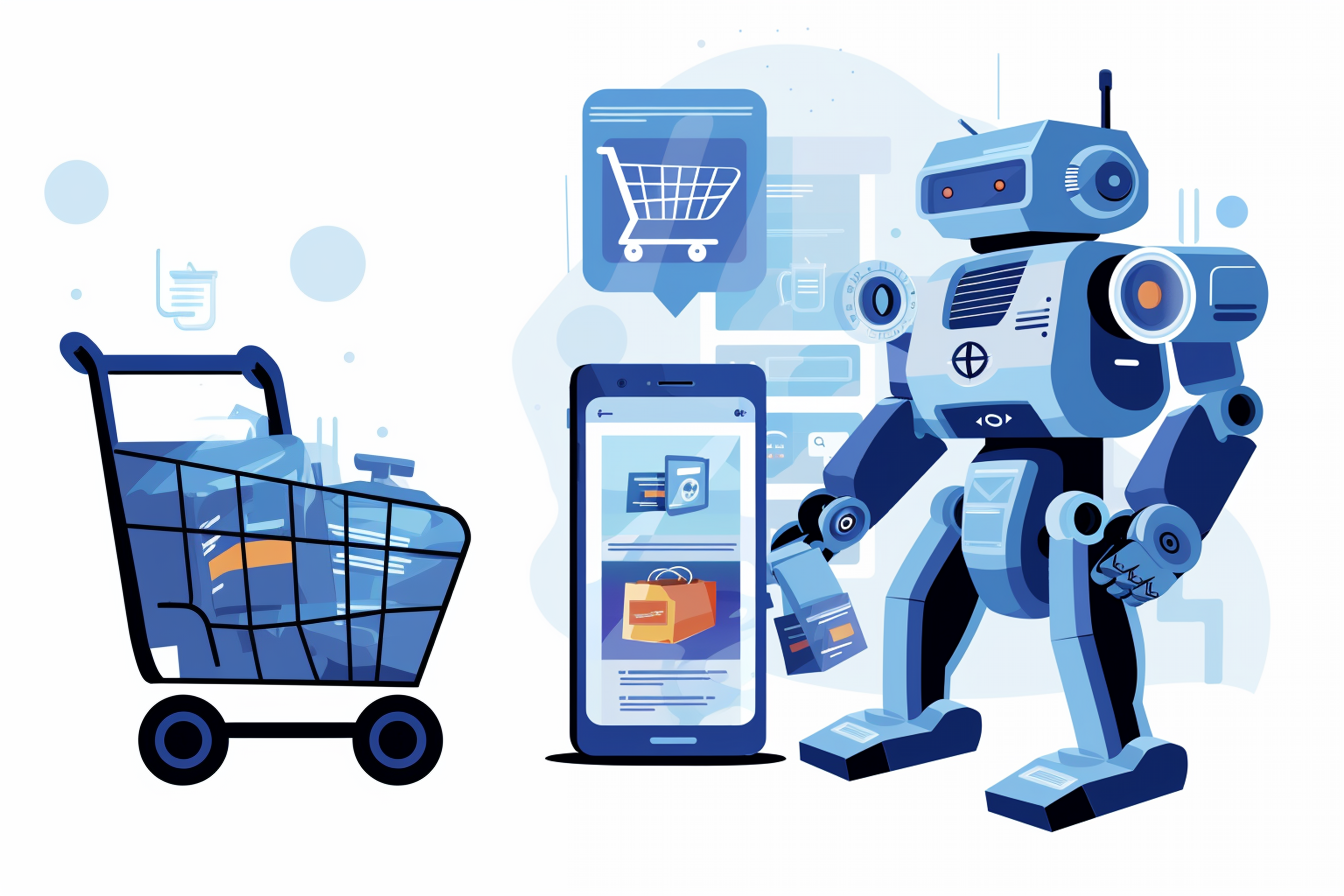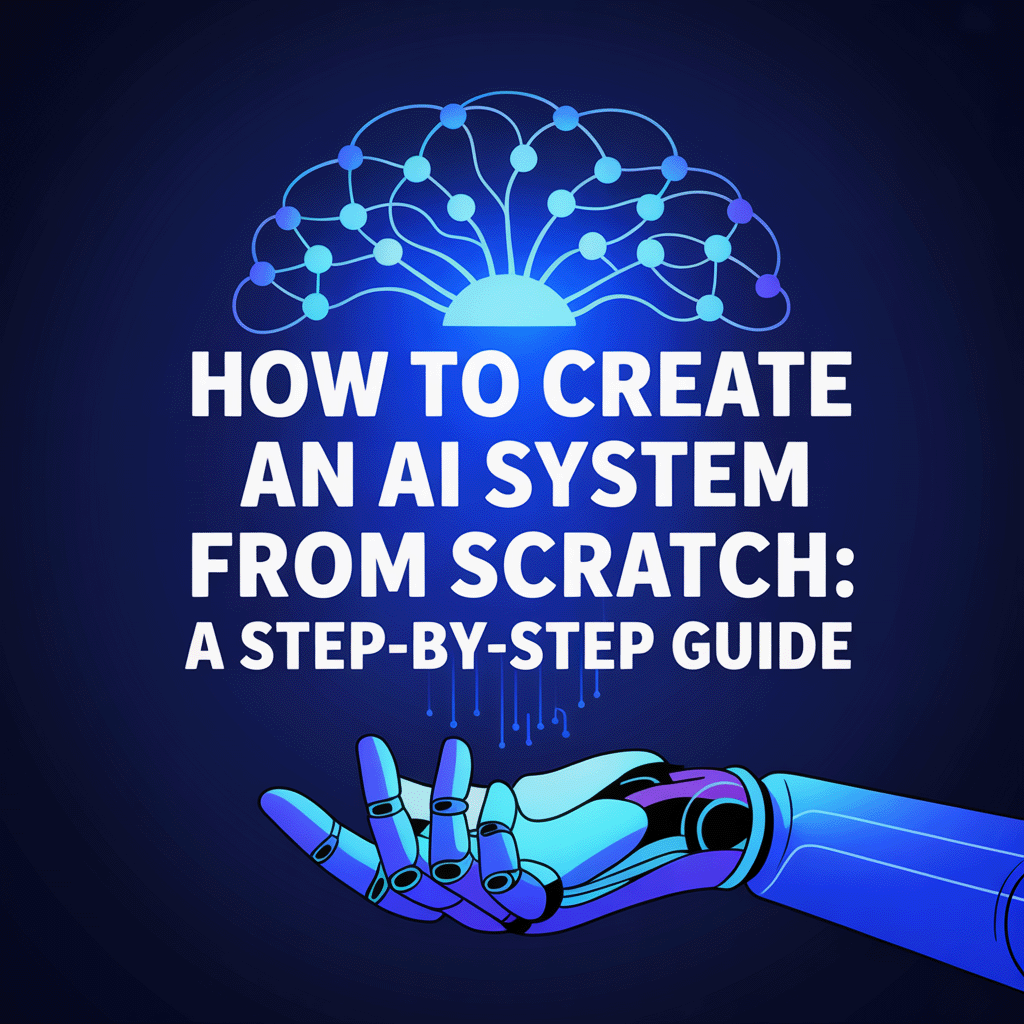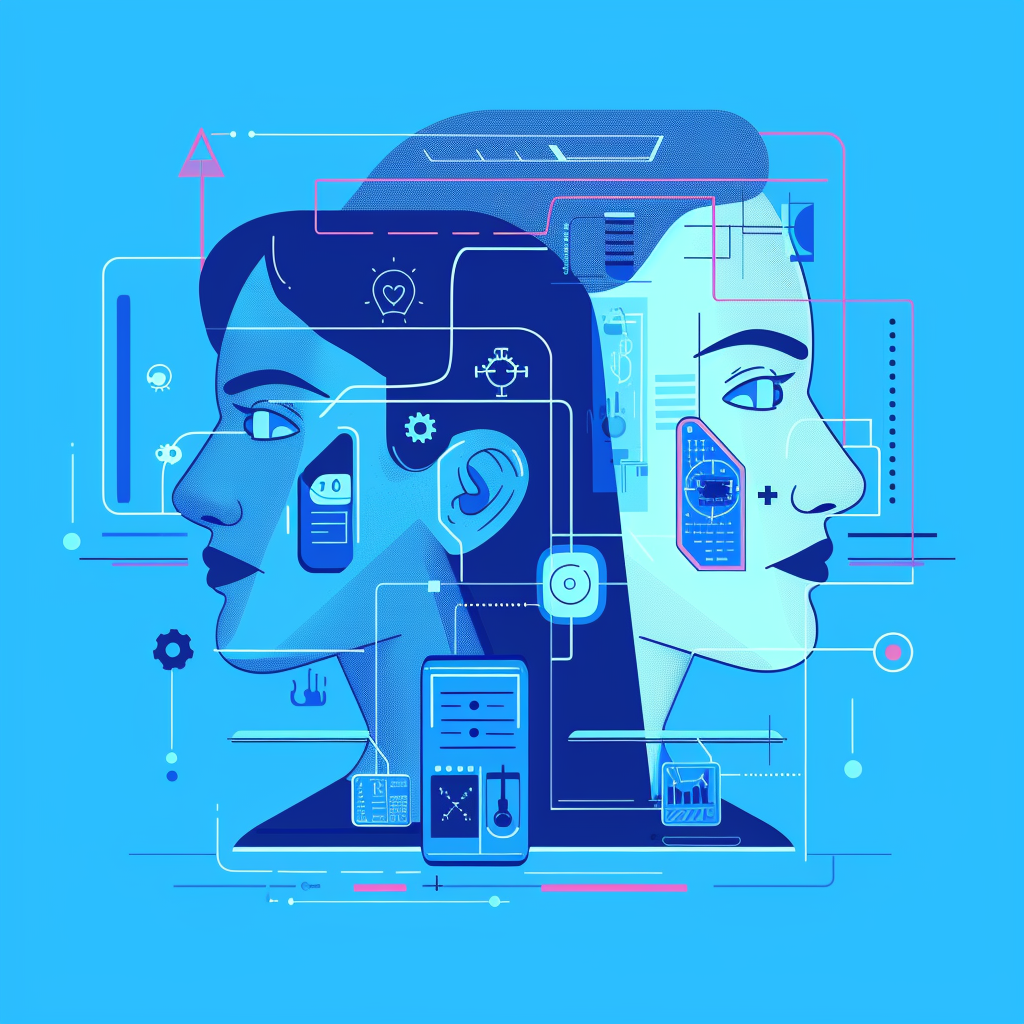With over 10,500 stores, clubs, and e-commerce websites across almost 20 countries, Walmart decided to introduce Artificial Intelligence to improve their customer and employee experience globally. They began phasing in AI several years ago and recently launched AI-driven mobile applications and e-commerce innovations like Mobile Scan & Co or Curbside Pickup to reinvent how physical and online shopping work together. The benefits of Walmart’s move in the ML & AI direction were instant.
Using AI in e-commerce is an industry trend that is here to stay. Many businesses, like Walmart, are considering e-commerce mobile app development and implementing AI technologies to improve their operations.
In this post, we’ll perform the factor analysis and discuss how to build e-commerce apps for the next generation.

AI Applications in E-Commerce
According to Statista, the e-commerce market is projected to reach $3,226.00 billion in revenue in 2024, with a user penetration of around 36.6%. As with previous years, Amazon leads the list of the top industry corporations by market capitalization ($1.47 trillion). Other names include Alibaba, Shopify, Meituan, and Pinduoduo.
However, more e-commerce companies want to improve on the traditional user experience. Empowered by AI tools, online retailers are introducing mobile apps that enhance the performance of the entire value chain. Today, the forecasted market share of the AI-driven retail industry is $31 billion by 2028.
One can say with certainty that artificial intelligence is the new electricity for e-commerce mobile app development. It is reliable and efficient in processing data sets, and the benefits of using AI are clear: it enhances user engagement, streamlines operations, and allows for smarter inventory management, all of which contribute to a more efficient and profitable business model.
So What Are AI-Powered Apps?
AI-powered mobile applications are apps that use Machine Learning, Artificial Intelligence, Computer Vision, and Natural Language Processing technologies to execute complex actions. By applying the power of Artificial Intelligence to diverse use cases, they provide supreme solutions and ensure a better end-user experience.
ML models connect collected data and make predictions based on it. Once an AI shopping app has been trained on user preferences and suggested products, it starts recommending goods and forecasting demands.
These are the most popular e-commerce apps that have implemented AI technology to boost their entire businesses: Amazon, IKEA, Wayfair, Alibaba, Justuno, Sephora, and Rewind.
Why Do E-Commerce Businesses Need AI-Powered Mobile Apps?
The reasons are different, and their number exceeds those showcased below. Yet, we’ll focus on the top 5 reasons your e-commerce business needs to build apps with AI.
- People buy online: In 2024, there will be 2.64 billion online customers, which is a third of the world’s total population. Online sales have become so easy because they’re simple and quick. With more people turning to the Internet to buy things, businesses need to launch e-commerce app development to stay ahead of the game. However, it is no longer enough just to create an e-commerce app. It should be an AI application in e-commerce.
- Global reach: Shopping app development allows businesses to erase geographical boundaries and have a global presence. Previously, businesses had to open physical shops, deal with local laws, hire more employees, and have successful advertising campaigns to enter the market outside their geography. Now, it’s enough to create and launch an application to reach a global audience.
- Convenience: In today’s busy world, people look for convenience in everything, especially when shopping. Those who offer their services and products in AI-driven mobile applications provide their target audience with the convenience they’re searching for. Users can browse and purchase what they need via an app, regardless of time or location.
- Personalization: The application of Artificial Intelligence in e-commerce allows customers to quickly find services or goods tailored to their needs. After using customer analytics and data, AI-driven apps deliver personalized experiences: They recommend products based on order history and send discounts and promotions relevant to customer interests. After a few successful purchases, personalization becomes the feature that makes customers come back for more.
- Cost-efficiency: AI technology is more cost-effective than traditional brick-and-mortar stores. In other words, you don’t need to pay for staff salaries, utilities, or rent since the business is run on the server side. Of course, if you decide to create a mobile e-commerce app with AI technology, you’ll need to make an investment that equals tens of thousands of dollars. But this investment always pays off eventually.
Now that you know all the WHYs, it’s time to get started. But how to create an app with AI? Find the answer in the next section.
How to Build an App with AI for E-Commerce
Every e-commerce business is unique, which means that approaches to building an e-commerce mobile app with AI are diverse. The steps we’ll introduce below are general approaches that should be adjusted to your needs.
Step 1: Begin with an App Idea
The idea comes after a thorough marketing campaign that helps to investigate business needs and client expectations. We suggest you also research the latest trends to understand what the audience needs that isn’t being fully provided. This may include not only a standalone app but also some specific features that no other application has.
This decision isn’t made by one person. You need to have several rounds of brainstorming with your team to find out what current and potential customers will find desirable or helpful in a new mobile app for e-commerce. If this is a new marketplace app development idea, make sure you hire reputable experts with experience and expertise across the marketplace niche. Once the concept is designed, work on a vision document outlining the app’s goals, features, and objectives.
Step 2: Articulate Business Goals
Before you make an app with AI, define the goals of your current business. If you don’t know what to start with, here’s a list of questions. Answering them will help you articulate your business goals.
- What is your target audience?
- What do you expect to achieve once the app is introduced?
- How long before the first benefits are achieved?
- What’s the monetization strategy?
- Is there a plan to move from MVP or Phase 1 to the next iteration?
After you have a clear vision of what value the app will bring to your clients and your business, put everything in writing: both you and your team should be aware of the goals to move forward accordingly.

Step 3: Choose the Platforms
The use of AI in e-commerce apps may be accompanied by some limitations. For this reason, you must carefully decide on your mobile application’s platform: iOS, Android, and Flutter.
For example, in 2023, Google wanted to put restrictions on the use of AI in apps for the Android OS, requiring development teams working on apps with generative AI to have moderation tools and report offensive or abusive content. Apps will need to comply with this rule starting in 2024, or they will be violating the Play Store rules.
There is no official chatbot/AI policy in Apple’s App Store Guidelines. And since there’s no document outlining what Apple permits, apps with ChatGPT-powered features are already distributed through the App Store.
Step 4: Make a List of Features
Of course, there is a very common list of features to be included in an e-commerce and AI application. They are sign-up and login, filtering and a search bar, order tracking and a shopping cart, integration of a payment gateway and customer reviews, user profiles/accounts, loyalty programs, push notifications, and in-app messaging.
A typical stumbling block is asking what’s next. To make a list of more profound features, you need to 1) have a dialogue with your internal team and 2) discuss options with the development team you plan to hire. The latter step brings a lot of value, for development teams know the ins and outs of the market and always look at mobile shopping app development from a technical perspective.
Step 5: Think over UI and UX
Of course, the AI software development team will be responsible for the UI/UX side of your AI-driven application. But you still need to come up with some references to make your app attractive, intuitive, user-friendly, and easy to navigate.
The UX design is significant in e-commerce application development. You want your app to provide a comfortable user experience that effortlessly guides the customer through their purchase journey. Your UX design should meet the latest e-commerce mobile app trends: minimalist, flat, and responsive.
The UI design also takes on a crucial role. It’s about what users see on their devices and how they interact. The UI design must be intuitive and optimized for different screen sizes and devices.
Step 6: Hire the Right Developers
To implement the required features and expected design, go with the right development team. Start by screening their portfolio for relevant case studies and make the first move: fill in the form and get on a call with their representative.
From-scratch development of an AI application in e-commerce requires a team of business analysts, designers, front-end and back-end engineers, quality assurance engineers, and a project manager. Hire an agency that can cover all the technical needs. LITSLINK is a team with broad experience in AI-driven e-commerce application development. With 300+ tech experts on board and dozens of success cases, we’ll support you from step one until the launch of the app.
Step 7: Onboard a QA Engineer before Launching an App
Thorough testing is a must. A series of tests (QA and user testing) allows us to detect flaws and improve app performance before deployment. Testing is typically performed across different browsers and devices to ensure that the application functions appropriately across environments.
We suggest pushing the beta version first to gather valuable feedback from real users before the final version is live. This allows important changes and necessary adjustments to be made before offering an application to a wider audience.
Step 8: Promotion and Launch
Unfortunately, the application of AI in e-commerce alone doesn’t guarantee the success of your mobile app. A promotion campaign is crucial to attract potential users before the application goes live.
- Organic promotion on social media: The simplest form of promotion is having a presence on social media, such as Twitter and Instagram accounts and a Facebook page.
- Paid social media promotion: Spend money on promotion for your e-commerce app and share information about it with more people.
- Public relations: To create buzz around your app, consider hosting an online event, issuing press releases, interviewing tech bloggers, and guest blogging.
- Influencer marketing: With the help of influencer tracking, choose and contact influencers whose audience is the most suitable for your app. Ask them to write a post or record a story to help you boost your client base.
Then, ask your software development team to launch the app.
Step 9: Analyze App Performance
Your app will require ongoing maintenance, but in addition to its technical support, you need to analyze the performance of your application. For this, you need to track the number of downloads, active users, how people use the application, engagement metrics, user retention, time spent in your app, in-app actions, CTRs, app opens per user, session intervals, churn rate, etc.
Set up tracking and analytics instruments to gain in-depth insights into user behavior. This will help you better understand what features are being used the most.

How Much Does It Cost to Build an AI-Powered E-Commerce App?
On average, the budget for mobile app development for e-commerce ranges from $40,000 to $80,000. Integrating AI-based tools into it will cost more and depend on different factors. The main one is how complex and advanced your AI tools are.
The best way to receive a more detailed or precise estimate is to consult a development team with experience building AI-powered apps for this industry.
Learn more in our article Marketplace App Development Cost.
Best AI Shopping Apps in 2025
Let’s focus on the businesses whose AI-driven mobile applications are now at the forefront of Artificial Intelligence and e-commerce fusion.
- Sephora App utilizes Artificial intelligence to understand customer needs and requirements and provide tailored offers. The application has an AI chatbot to answer questions and tools for predictive analytics to make sure that the costs of products are such that customers buy them to keep brands earning money.
- Amazon Alexa AI voice assistant utilizes NLP to understand the clients and deliver tailored products and customized answers. Moreover, the assistant creates shopping lists and tracks orders.
- Target App uses ML and AI tools to interpret product images and match them with products in the database. The app’s chatbot also answers custom questions and makes product search easier.
- Alibaba Alipay is a payment platform with AI features that help customers purchase goods with a few clicks. The embedded AI tool prevents fraud and customer data loss, ensuring high security.
- Walmart App with AI identifies customers’ preferences and offers customized recommendations. Its predictive analysis tool helps price the products correctly, while its chatbot helps customers solve purchase-related issues.
- Alimama is a tool developed by Alibaba for businesses. Its core task is to investigate customers to help businesses deliver the right ads, thus reaching more people and making more money.
What AI tools make such applications so powerful? AI-based shopping assistants and chatbots transform e-commerce application development: Shopdev Shopping Assistant, Manifest, Shopping Bot, Shopmate, Intercom AI Chatbot, Infichat, Tidio AI, Chatfuel, Verloop, Giosg, etc.
Bottom Line
Technology constantly evolves, forcing industries like e-commerce to evolve as well. Artificial Intelligence will undoubtedly continue transforming the industry, offering customers the best user experience while e-commerce businesses continue to grow their finances.
Choosing the right app idea, feature set, platform, and development team is crucial to succeed. If you’re ready to move ahead, contact us to investigate what options you have, what budget should be allocated, and what benefits your business will face.





